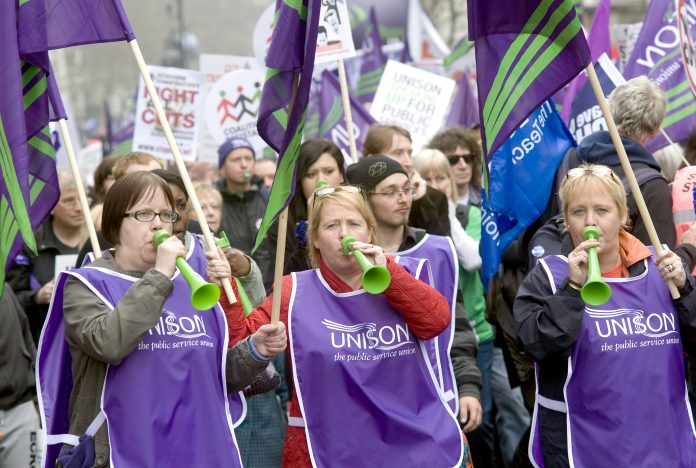Jane Nellist, Coventry Socialist Party
For too long, the menopause had been ignored, regarded as the last taboo subject for women. Not any longer!
The anger and panic of women over the shortage of Hormone Replacement Therapy (HRT) medication, as well as increased public awareness, has demonstrated that millions of women rely on HRT to offset some of the more debilitating symptoms of the menopause.
Menopausal women can experience hot flushes, headaches, tiredness and excessive sweating. High workplace temperatures, poor ventilation, poor or non-existent rest or toilet facilities, or a lack of access to cold drinking water at work can make all of these symptoms worse.
Other symptoms can include blocks of memory loss, not being able to finish a sentence, feelings of anxiety and increased stress levels, and a loss of confidence as well as excessive, unpredictable bleeding.
For a time, there was uncertainty about the safety of HRT treatment. Many women were put off by reports that they caused dangerous side effects.
Insufficient investment
Insufficient investment in research into the menopause and how to support women during this time, as well as a lack of public awareness, have added to the lack of understanding.
With advances in medical understanding, HRT has proved to be effective for millions of women experiencing the menopause – allowing them to be able to work and live without too much inconvenience.
HRT shortages have left women in serious distress, resorting to extreme methods to try and access medication. Unscrupulous online dealers put women at risk from those who seek to make money out of the crisis.
Celebrities, like Davina McColl, have helped to lift the veil on this hugely important issue. Talking publicly about the impacts of the menopause on their health and wellbeing, and their career, it resonated with older women and the issues they had been forced to contend with in the workplace.
Let’s be clear though, this is a class issue. For many women, the cost of trying to access HRT is prohibitive. Even paying for prescriptions, if you are on low pay, is out of reach for some. And not all women can take HRT.
Workplace discrimination
There are now far more women over 50 in the workplace. This will continue to rise as the pension age increases, benefits are cut, and older women are forced to work.
What’s more, at this time of life, women have more demands placed on them to care for elderly relatives or support grandchildren because of cuts to our services.
The fight to have the menopause recognised in the workplace has been ongoing, and Socialist Party members have campaigned for the trade unions to take up the fight.
In 2014, myself and Nicky Downes, two Socialist Party members, campaigned for the education union, NUT, now NEU, to produce campaign materials and policies to use in workplaces to support women experiencing menopausal symptoms (see ‘The menopause: breaking the taboo’ at socialistparty.org.uk). With women making up the majority of the union’s membership, it was seen as a crucial issue. Added to which, there was evidence of older women being victimised by bosses.
Other trade unions have followed suit. Wales TUC has produced an excellent document outlining the importance of campaigning and fighting for workplace policies. But more must be done!
We need to fight to change our society to one where all are valued and supported.
Fight for:
- Free prescriptions for all
- End the HRT shortage – take over the profiteering drugs companies under democratic working-class control and management
- Workers’ control in the workplaces, including the right to adjust your role, working hours and annual leave, without loss of pay
- Fully fund menopause clinics and education programmes with access for all women Shorter working-week for all with no loss of pay and £15-an-hour minimum wage







